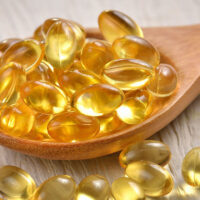Exercises are key in building up muscles. That is obvious. But still, many beginner gym-goers, who have only just begun their bodybuilding adventure, forget one important detail. Gym pumping alone will not give you the results you are waiting for. To build up a strong and healthy muscle mass you also need to pay attention to its building blocks. Only if you combine a well-balanced diet with physical activity, can you achieve satisfactory results. You can perform even better if you add supplements that will help you regularly supply your muscle mass with the appropriate nutrients. What supplements will be of aid in your fight for a dream body?
How to start
Regularity is key to muscle building, both when it comes to working out and eating. The process encompasses three training cycles: strength building, muscle building and fat reduction. The cycles differ in the type and intensity of exercises, diet and effect. When moving from one cycle to another, remember to pause for 1-2 weeks. The key elements in the whole process are muscle building and fat reduction.
Mass diet is nothing but the appropriate combination of nutrients to cause the growth of muscles. Start with increasing the calorific value of your meals and remember to increase the supply of proteins and properly hydrate your body.
Although you are going to eat high-calorie meals in all cycles, the number of calories will be different for different periods. The body needs the biggest amounts of calories in the muscle building phase and the lowest amounts of calories in the fat reduction period. It is similar with proteins, the supply of which should be tailored to the training objectives.
Next to regular and well thought-out meals, a mass diet should contain a number of different supplements that will give your body more nutrients and minerals than it needs. If your workout routine, daily meals and mass supplements harmonise well, you will see your muscles grow.
Muscle mass that is difficult to build up
It can take you several years to build up a dream body, which is why you should thoroughly prepare to the process. Start with setting a goal and defining your body type. Then, calculate your daily calorific needs. In this way you will be able to determine how much energy you need to achieve the pre-set goal. When selecting a diet you need to take into account your body type and physical capacities.
Working out is not enough. What you also need is time for recovery and rest. Only then will you be sure that the peri-workout damage to your muscles has time to heal.
What are protein supplements
Protein supplements are probably the most popular mass supplements that enhance muscle growth. They contain protein isolated from different high-protein products, such as milk, soy or whey. Why supplement a mass diet with proteins? Because protein is the core building block of the muscles, and together with the growing intensity of trainings grows the demand for proteins, while the foods eaten with diet will not always cover such demand. One of the most popular protein supplements is whey protein. Certain fractions of the protein show pharmacodynamic activity, including anabolic activity, while other significantly reduce the levels of cortisol, which has catabolic effects and destroys muscle proteins, thus making the work on your dream body even more difficult.
Whey proteins should constitute ca. 30% of the whole pool of proteins consumed every day. Fast-absorbable whey proteins work best if combined with slowly-absorbable proteins. The initial impulse for whey protein synthesis is generated very quickly and persists for 1 to 2 hours. Then, the level of the amino-acids drops fast. Not to lose access to their core building material, muscles need supplementation with proteins, the decomposition of which takes 8 to 10 hours.
Why are BCAAs so important in mass-building diet?
Branched-chain amino-acids (BCAAs) should be the base of a mass diet. These supplements are well-known and have been thoroughly tested and proved to reduce fatigue and prevent overtraining. They are particularly important in the stagnation period, when the results obtained are less spectacular than at the beginning. You start to see that the progress is slower, which can be due to the monotony of your exercises, overtraining or muscle overloading. Supplementation with the appropriate amounts of branched-chain amino-acids has a salutary effect on muscle building and growth and on fat reduction alike. Moreover, BCAAs prevent fatigue and show strong catabolic activity.
You can fully cover your protein demand with your diet. But still, high-protein supplementation can be a good idea. BCAAs are particularly helpful during strength trainings. Take a portion 30 minutes before working out and another one during the training.
BCAAs can be found in whey proteins, i.e. casein-free milk, carbohydrates and fats. The majority of research shows that whey increases protein synthesis and muscle growth much better than other additional sources of proteins (e.g. casein or soy). This is mainly caused by high content of branched-chain amino-acids, that is, BCAAs.
Creatine
Creatine is a natural substance occurring in skeletal muscles. It stimulates protein synthesis and has anabolic and anti-catabolic effect. Last, but not least, creatine determines the pace of muscle growth and performance and improves recovery. Equally importantly, the substance is an inhibitor of myostatin, that is, the protein which is responsible for muscle gaining prevention. Creatine supports the activity of other anabolic steroids and testosterone, a hormone causing strength and muscle mass increase. Anabolic steroids, in turn, enhance the production of creatine, thus improving testosterone conversion. The most important task of creatine, however, is its participation in the synthesis of ATP, the compound that delivers energy during muscle fibre contraction.
Creatine is probably the most popular muscle gainer in the world. It is available in several different forms, including creatine monohydrate or creatine ethyl ester. Although new, “improved” forms keep appearing on the market every now and then, the position of the monohydrate remains unthreatened. Creatine is effective in improving endurance during intense trainings.
Caffeine
Research shows that caffeine is beneficial to those wanting to burn fat and build muscles, and should be included in a mass diet. The substance accelerates metabolism by 3-4% for ca. 2 hours. As a result, the amounts of fat burnt during and after the workout are also increased.
The effects of caffeine include the enhancement of strength, which can eventually cause increase of muscular power. Caffeine metabolites, in turn, increase the concentration of free calcium ions, causing muscles to contract with more strength. Caffeine should be taken 45-60 minutes before working out.
Other indispensable ingredients
A good mass diet should contain vitamins and minerals to ensure proper functioning of the body during and after workouts. Magnesium: rarely added to muscle gainers, the mineral should be supplemented separately. With magnesium, you will maintain proper functions of your nervous and muscular system. Additionally, it improves the quality of sleep and recovery at night. The daily dose of magnesium is 400-500 mg about 45-60 minutes before bedtime.
Another element to be included in your mass diet is Vitamin D. The few studies concerning the dependency between Vitamin D and physical performance that have been conducted show that it influences the quality of physical activity and muscle growth. The recommended daily dose equals 500 to 1000 mcg. Vitamin D works best if taken with meals that contain fats, to ensure its optimum absorption.
Summary
Every athlete’s and bodybuilder’s diet should be well-balanced, meaning that it needs to be well adjusted to individual needs of the person working out and contain all the necessary ingredients. The combination of mass diet with suitable muscle gainers and the right dose of rest makes a perfect recipe for a beautifully sculpted body. Remember to wisely choose your diet and workout routine.




